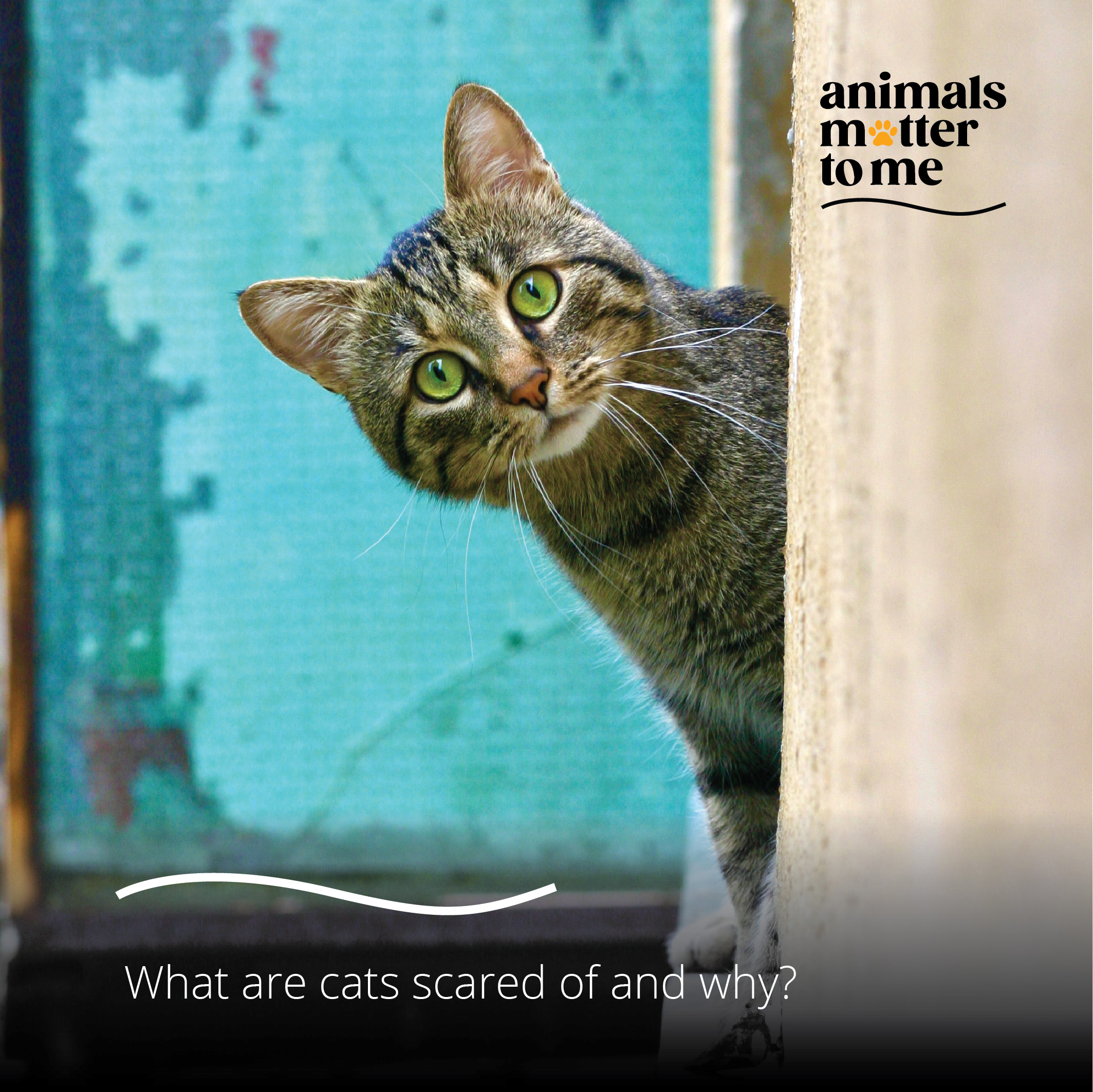It’s said, a confident cat is going to walk right through the center of the room, their tail held high, and act like they own the place, while a more fearful cat may slink on the perimeters of the space. While these behaviours will vary from cat to cat, if you suspect your feline companion is suffering from fear, anxiety, or stress, you’ll want to get to the bottom of it.
To help, we’ve compiled a list of common cat fears and anxieties
- Loud noises
Unsurprisingly, cats are not fans of loud noises. Especially if it continues over time, noise can cause high levels of anxiety and stress. Their sense of hearing is far more acute compared to ours. They can hear a mouse in a football field and pinpoint its exact location, so can you imagine what the ear-piercing screams of an infant might feel like for them? Anything loud and abrupt can constitute a stress-inducing noise. Think vacuum cleaners, loud traffic outside, construction noise, or even loud sounds on the TV. If they don’t get acclimated and desensitised to those types of experiences from a young age, they tend to get spooked by them very easily.
- Wide open spaces
Ever wondered why cats tend to hide under the bed, in boxes, or in the laundry pile? Cats are predators that like to be hidden, so they often feel anxious in wide-open spaces. Big, vast, open spaces are really scary for them. Without realising, we often make it difficult for them to get to the things they need most, noting that if cats have to walk through open, high-ceiling rooms, they may feel exposed, with nowhere to hide.
- Children
To cats, this small human being might be an alien creature. A baby smells different, sounds odd with a higher-pitched voice, and though an infant is small and closer to a cat’s level, it moves erratically, which can cause anxiety in a feline. As a result, the cat may switch into stranger-danger mode and hide, or become defensive and try to swat at the scary little alien to make it go away.
- Strong Odours
Felines have an incredible sense of smell which is fourteen times more intense than humans. They pay attention to the scents in their environment and will respond to various pheromones intensely. Some smells, such as those of catnip, cats will love. However, the amount of pleasure they get from smells they like can be countered by the amount of fear they experience because of smells they hate. Certain strong odours are particularly unpleasant for cats. These include vinegar, onions, petrol, certain alcoholic beverages, citrus fruits and others. Some cats are so sensitive, even the lingering scent in the air can make them fearful. However, this is not always the case. Some cats may be interested in the smell of a lemon and even have a few licks.
Working with fearful cats can be a challenge because people often confuse their behaviour with aggression. Encouraging timid cats to break their cycle of fear takes time. Be very patient and don’t force your cat to do anything. Let the cat come to you. You can encourage interaction by speaking softly and offering positive experiences, but don’t push it. The most important thing to remember is to avoid pushing the scared cat into situations it finds uncomfortable. Allowing the cat to be wary and overcome fears on its own is the best way.
I have studied many philosophers and many cats. The wisdom of cats is infinitely superior -Hippolyte Taine




